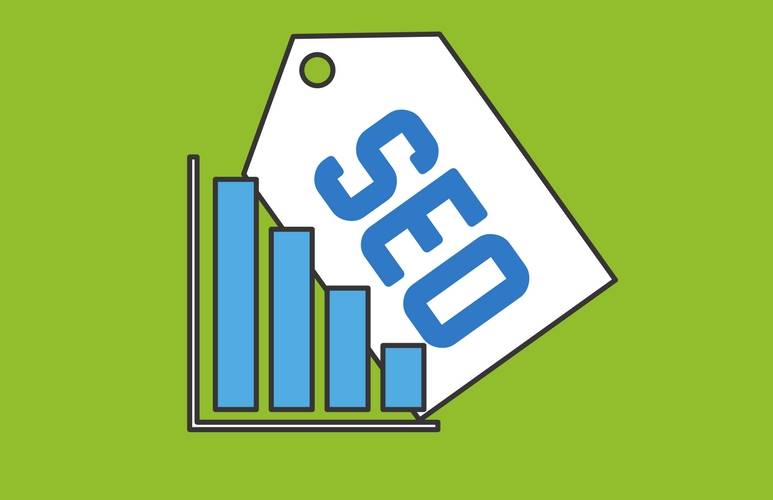If you own a small business and are just starting out in online marketing, you might want to think about hiring someone to do it for you.
The following guide will give you a broad overview of online marketing methods, strategies, and techniques, as well as answer the question among many online marketing managers, specialists, and agencies vying for your business: who wins the SEO vs. Digital Marketing debate when it comes to online marketing?
SEO and Digital Marketing are more similar than it may seem at first.

The fact is that SEO or Search Engine Optimization is a part of Digital Marketing which covers both paid and organic (free) methods to advertise and brand a company, individual or website on the internet.
While it first may seem that one is better over the other, a much-heated debate between proponents of free traffic methods and paid traffic methods, ultimately they both can work in tandem to achieve great results when marketing and advertising over the internet.
The following guide helps to cover the basics of Digital Marketing and SEO to better help you judge the merits of both and help you decide which service you need right now to grow your business online.
Difference Between Digital Marketing and SEO
To help get a better understanding of which one is better to concentrate on when first starting out, let us first define what is meant by Digital Marketing and what is meant by SEO.
Digital Marketing
While many online advertisers and agencies disagree as to what constitutes the absolute definition of Digital Marketing, the term itself refers to almost any form of advertising through digital channels, the most common of which include: search engines, social media, mobile apps, email, and online paid advertising platforms.
SEO
Search Engine Optimization (SEO) is considered to be one of the main foundations of Digital Marketing and is usually what new website and business owners start out doing when first advertising online.
In its simplest form, SEO is the act of arranging your content and technical aspects of your website to attract visitors to it through the means of search engines. For the most part, this is done organically, or in simpler terms, using free methods.
From the above definitions you see that SEO is part of Digital Marketing, but whereas Digital Marketing covers a broad range of online marketing methods, SEO is focused on one area in particular that uses a host of practices to achieve successful results.
Another interesting fact to note is that SEO focuses on bringing traffic to a particular website through search engines whereas Digital Marketing uses other practices, both paid and free, onsite or offsite, to achieve brand awareness, traffic, conversions, and leads.
To achieve such results online marketers and small business owners will usually use a person or an agency to fulfil their online advertising needs. This is either done by an SEO specialist or Digital Marketing Manager.
SEO Specialist/Digital Marketing Manager
What does an SEO Specialist do?
In brief, an SEO Specialist is an expert in SEO practices.
To be more exact, an SEO Specialist is a person who helps your site rank high in Google or Bing.
While these two definitions may be enough, further explanation may be required, especially when considering getting your site ranked high in the search engines (the most important result of SEO and its various practices).
An SEO Specialist is an expert in researching, developing, analysing, and implementing practices methods, and strategies to achieve high search results.
They do so mostly through the use of keywords, content creation, and arranging the website in such a way as to comply with search engine guidelines.
As search engines are always changing their guidelines and criteria, an SEO specialist is also continuously updating their strategies and approaches to stay in compliance with the times, which is why they are crucial for a small business trying to drive customers to their site.
In the end, an SEO specialist can save a website owner time and effort, since it is difficult to be up to date with the constant search engine changes unless one is dedicated entirely to doing so.
Related article: Why An SEO Audit Is Important
What does a Digital Marketing Manager do?
A Digital Marketing Manager is one who has a broad range of marketing expertise across all or most online advertising channels, both free and paid.
For the most part, a Digital Marketing Manager will also have a good working knowledge of SEO but also be fluent in content, email, social media, and mobile marketing methods and practices.
Since a Digital Marketing Manager deals with such a broad range of online advertising platforms, they will often employ various specialists under them who are experts in each specific marketing field including an SEO specialist.
All the members form what is called a Digital Marketing Agency.

Integrating Digital Marketing and SEO
As was stated earlier in this guide, Digital Marketing and SEO are not the antithesis of each other but work extremely well together. In fact, in today’s online marketing world, it is almost necessary to employ SEO along with all the other Digital Marketing methods to design a more comprehensive and complete online marketing strategy.
The one good thing about employing a Digital Marketing Manager is that he/ she usually has SEO expertise and therefore you can request only SEO services to start with.
If you are satisfied with the results you get from their SEO services, you can then scale up and employ him/her for a broader range of Digital Marketing strategies.
***Before you consider hiring a Digital Marketing Manager or Agency be sure that they are up-to-date with the latest trends in Digital Marketing including being compliant with the most recent SEO best practices.
Latest Trends in Digital Market
To give you a better idea of what to ask for of a Digital Marketing Manager before you hire them- make sure you request them to explain each one in great detail – the list below has been provided.
The list includes the expected Digital Marketing trends that will most likely impact Digital Marketing Systems in 2018, according to industry experts.
- Mobile and Smartphone Growth – Advertising Geared More Towards Mobile and Smartphone Users
- Increased Personalisation For Customers On Website Landing Pages and Social Media Accounts
- Increased Marketing Employed Throughout Customer Lifecycle – Continuous Marketing to Customers Without Looking too “Salesy” or “Pushy.”
- Artificial Intelligence/Machine Learning as a Marketing Strategy
- Digital Marketing Automation
- Customer Engagement – Coming Up With New Marketing Methods to Keep Customers Interested and Loyal
- Mobile Apps Strategies Implemented Into Marketing Campaigns
- SEO and Content Marketing Employment/Integration
- Incorporating Multiple Streams of Data to Design More Effective Campaigns
The Difference Between SEO and SEM
Now that we have covered both SEO and Digital Marketing let us discuss another term associated with both of these topics – Search Engine Marketing (SEM).
The goal of both SEM and SEO are the same: to increase visibility and attract visitors through search engine results.
The main difference between the two is that SEO focuses on optimizing a website by free means to get better rankings, while SEM does the same but also includes both organic and paid methods as well.
For example, Pay-Per-Click (PPC) advertising on Google is part of SEM but not SEO.
The Importance of SEO

Perhaps a comparison of the two Digital Marketing strategies is in order here. The best way to get a better idea of what each entails is to give a brief description of the two, and while SEO was already explained earlier in this guide, it wouldn’t hurt to review what constitutes it once more.
To recap, SEO entails optimising a website to ensure higher rankings in the search engines through organic (free) methods. It employs two main components to achieve this end: On-site and Off-site SEO.
On-Site SEO
Rules, methods, and practices applied to a website that makes it likeable to various online search engines.
These methods include optimising titles, descriptions, headers, images, and content on a site through the use of relevant keywords.
Related: Fix SEO Now Package
Off-Site SEO
Commonly referred to as Link Building, off-site SEO seeks to increase search engine rankings through links on other websites that point back to the site. It is not just the number of links pointing back to a particular website that search engines look for here to rank it, but more importantly, the quality of those links.
If a site has one or two “backlinks” pointing to it from highly reputable websites, then that is better than having a hundred links pointing to it from websites that are ranked low in the eyes of Google, Bing, or any other online search engine.
Related: Content Promotion & Backlink Outreach Service
SEM: What it is and why it is important
SEM seeks to increase visibility through search engines and increase traffic to a website through SEO and paid search engine methods.
The most popular paid search engine method is Google Adwords, where your ad is displayed when a specific keyword or keywords are entered in a Google Search. The amount and placement of the ad vary in direct proportion to an algorithm that measures bid amount, site relevance, and ad copy compliance as outlined within the Google Adwords platform.
In essence, SEM has the potential to bring more visitors than SEO to a site as it employs paid search methods that increase the site’s visibility in the search engines with immediate effect.
Should I Hire A Digital Consultant Or Digital Marketing Manager?
As a small business owner just getting their feet wet with advertising online, it is recommended that you do seek some form of help, at least in the beginning.
Of course, you could go at it alone, but you are going to have to take many courses about SEO, SEM, and all the other Digital Marketing methods that exist today. That is, however, if you have plenty of extra time and money to do so.
***Remember, by the time you have finished getting a solid education in this broad field, everything you learned may already be old hat.
The ideal option is to hire someone to do this work for you.
To answer that SEO vs Digital Marketing question, as to whether SEO is better than Digital Marketing or vice versa, the answer is neither.
They both compliment each other and can be used as separate strategies or in tandem to produce excellent advertising results.

